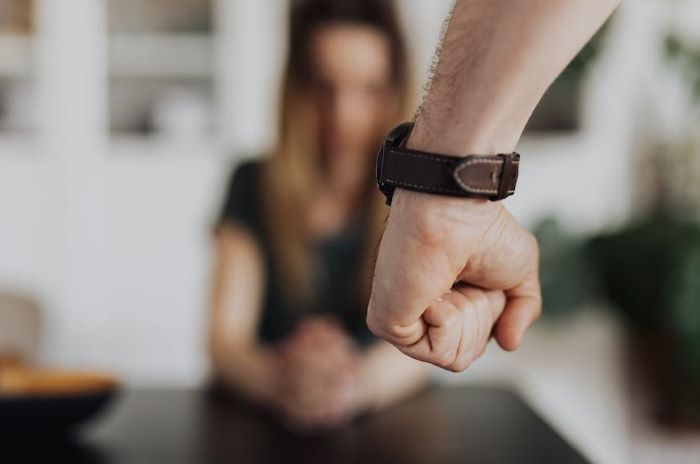Drug Possession Lawyer
If you or someone you know has been charged with drug possession in North Carolina, understanding the intricacies of the state’s laws and the potential consequences is crucial. Drug possession charges can have a profound impact on your life, ranging from hefty fines to imprisonment. To navigate through the legal complexities and safeguard your rights, it is essential to seek the expertise of a seasoned drug possession lawyer. At Garrett, Walker, Aycoth & Olson, Attorneys at Law, we are committed to providing strong legal representation and fighting for your best interests.

Understanding Drug Possession Laws in North Carolina
North Carolina has strict laws regarding drug possession. The state classifies controlled substances into different schedules, and the penalties for possession vary depending on the schedule of the drugs, the quantity, and the intent of the person in possession. Possessing drugs like marijuana, cocaine, heroin, methamphetamine, or prescription medications without a valid prescription can lead to severe legal consequences.
Possible Charges and Sentences:
The penalties for drug possession in North Carolina are determined by various factors, including the type and quantity of the drug involved, previous criminal record, and intent. Here are some potential charges and sentences for drug possession:
- Simple Possession: Possessing a small amount of a controlled substance is typically charged as a misdemeanor. The potential penalties can include fines, probation, mandatory drug treatment programs, and a criminal record that can affect your employment prospects and personal life.
- Felony Possession: Possessing a larger quantity of drugs, being caught with drugs near a school or other protected areas, or having the intent to distribute can lead to felony charges. Felony drug possession convictions carry more severe penalties, including substantial fines, lengthy prison sentences, and the potential loss of certain rights.
- Aggravating Factors: Certain aggravating factors, such as possessing drugs with the intent to sell, distributing drugs to minors, or possessing firearms during the offense, can significantly enhance the charges and potential sentences. It is crucial to have a lawyer experienced in drug possession law by your side to challenge these factors and protect your rights.
Why Hire a Drug Possession Lawyer?
- Legal Expertise: A skilled drug possession lawyer specializing in North Carolina law can navigate the complex legal system, ensuring your rights are protected at every stage. They will analyze the evidence, identify weaknesses in the prosecution’s case, and develop a strong defense strategy tailored to your situation.
- Reduced Charges or Dismissal: A knowledgeable lawyer may negotiate with the prosecution to reduce the charges or pursue alternatives to incarceration, such as drug diversion programs or probation. In some cases, they may uncover constitutional violations or procedural errors that can lead to the dismissal of charges.
- Strong Advocacy: When facing drug possession charges, having a lawyer who will zealously advocate for your rights and best interests is crucial. They will fight to suppress unlawfully obtained evidence, challenge the credibility of witnesses, and present compelling arguments in your defense.
Drug Possession cases are the most common criminal offense we handle at Garrett, Walker & Aycoth. Drug Charges, including Marijuana, Cocaine, Heroine, and Molly are handled by our Lawyers every day in District and Superior Court. It seems Drugs are found about everywhere these days, in some cases Drugs are found in a house, inside a jacket or pant pocket, on the ground between a group of people, in the center console, etc. But when it comes to Drug Possession cases it’s important to acknowledge that there may be several defenses to those cases.

For starters, with Drug Possession cases there’s this concept of Possession.
The First Element of Possession is that the Drugs must be:
1. POSSESSED; and
2. KNOWINGLY POSSESSED
Drug Possession can be broken down into two parts:
ACTUAL POSSESSION and CONSTRUCTIVE POSSESSION
Actual possession of drug is when the DRUGS are found on your PERSON. This is where you’re walking down the street, police search you (for some reason) and somehow, someway they find Drugs in your pocket. Most would assume that if you’re wearing an article of clothing and Drugs are found inside of it, then you must know it was there. However, what if it’s not your jacket, your pants or your shoes? Or what if someone else had worn your jacket the day before and you had no idea what they put in the pockets.
DEFENSES TO ACTUAL POSSESSION DRUG CASES: Contraband in Clothing cases are often difficult cases because you have to overcome the presumption that you know what’s in the clothes you’re wearing. This being said, we’ve been successful arguing cases involving a lack of knowledge about the jacket, pants, and even shoes. Typically the Defense will work if there wasn’t any identifying information in the pocket…no ID and no other reason for our Client to reach into the pocket.
With Drug Cases involving Actual Possession cases we explore a number of different areas:
- Actual Drug Possession Areas
- Police Officers Observations.
- How did our Client react when told about the drugs in the pocket?
- Were there any Witnesses with the Defendant?
- Why was our Client Stopped?
- What amount of Drugs was found?
Constructive Possession 0f Drug cases involve charges where our clients have access to Drugs. Typically these cases involve Drugs found inside the center console of a car with four passengers. Whose drugs are they? In some situations one person comes forward and takes responsibility for the Drugs, however in a majority of situations, no one says a word and everyone ends up being charged. So this begs the question, What is Constructive Possession?
State v. Matias was a 2001 NC Supreme Court case which explained Constructive Possession. Constructive Possession exists “while not having Actual Possession…has the intent and capability to maintain control and dominion over the Narcotics.” The opinion continued with, “where such materials are found on the premises under the control of an accused, this fact, in and of itself, gives rise to an inference of KNOWLEDGE and POSSESSION…however, UNLESS the person has EXCLUSIVE POSSESSION of the place where the Narcotics are found, the State must show OTHER INCRIMINATING CIRCUMSTANCES before Constructive Possession may be inferred.”
So with Constructive Possession we first look at two areas. Was our Client by themselves and had sole control over the area where the Drugs were found? Or, did multiple people have access to where the drugs were found, and does the State have any other CIRCUMSTANTIAL EVIDENCE showing our Client’s KNOWLEDGE of the Drugs as well as Possession?

In a lot of situations, drugs are found in an area and our client has no idea that the Drugs are there. This happens in residences, cars and any other area people may come together. These cases come down to Knowledge of the Defendant…Did our Client KNOW or SHOULD THEY HAVE KNOWN that there were Drugs in the House, Car or in their Presence? A lot of times these cases involve family members, roommates, girlfriends/boyfriends. The sad part is, that if you have KNOWLEDGE, and you ALLOW a PERSON to HAVE DRUGS in your area this may subject you to POSSESSION CHARGES.
With Misdemeanor Drug Charges especially, and a small percentage of the time in Felony Cases, Law Enforcement does not run fingerprints in a Constructive Possession case. We’ve had success arguing in Constructive Possession cases that they should have obtained fingerprints, because doing so would have eliminated any question as to whose DRUGS they were…and if they didn’t run fingerprints at all, why not? Were they truly trying to figure out whose drugs they were, or were they just wanting to charge everyone involved? How can they prove beyond a reasonable doubt someone Constructively Possessed Drugs when they didn’t even run the most basic test to figure out who they belonged to?
Contact Garrett, Walker, Aycoth & Olson, Attorneys at Law
If you are facing drug possession charges in North Carolina, do not navigate the legal system alone. At Garrett, Walker, Aycoth & Olson, Attorneys at Law, our experienced drug possession lawyers are dedicated to providing effective legal representation. We understand the gravity of these charges and will work tirelessly to protect your rights, explore all possible defense strategies, and strive for the best possible outcome.
Contact our attorney in Greensboro NC today if you or someone you know has been charged with Drug Possession in Greensboro, High Point or Asheboro. Call 336-379-0539 or contact us online to schedule a consultation.
Criminal Defense Lawyer Posts

Assault and Battery: Differentiating Between Charges and Defenses in North Carolina
February 24, 2024Violent crimes, such as assault and battery, are not dealt with in the same manner. North Carolina law has different interpretations for how these crimes are charged, which can also ...

Defending Against Assault Charges: Strategies and Legal Considerations in Greensboro
February 23, 2024Have you been charged with assault in North Carolina? If yes, it means that someone believed that you threatened to hurt or harm them in some way. Whether it is ...

Theft vs. Robbery: Understanding the Legal Distinctions and Implications in Greensboro
February 23, 2024Theft and robbery are two words that are often interchanged, such that many assume they are the same. The confusion is understandable as both crimes involve taking another person’s property ...
The Ultimate Guide to Choosing the Best Criminal Lawyer Near You: What You Need to Know
February 11, 2024Finding the right criminal lawyer can be the turning point in any legal battle. Whether you’re dealing with a DUI charge, a misdemeanor or facing felony accusations, the quality of ...
